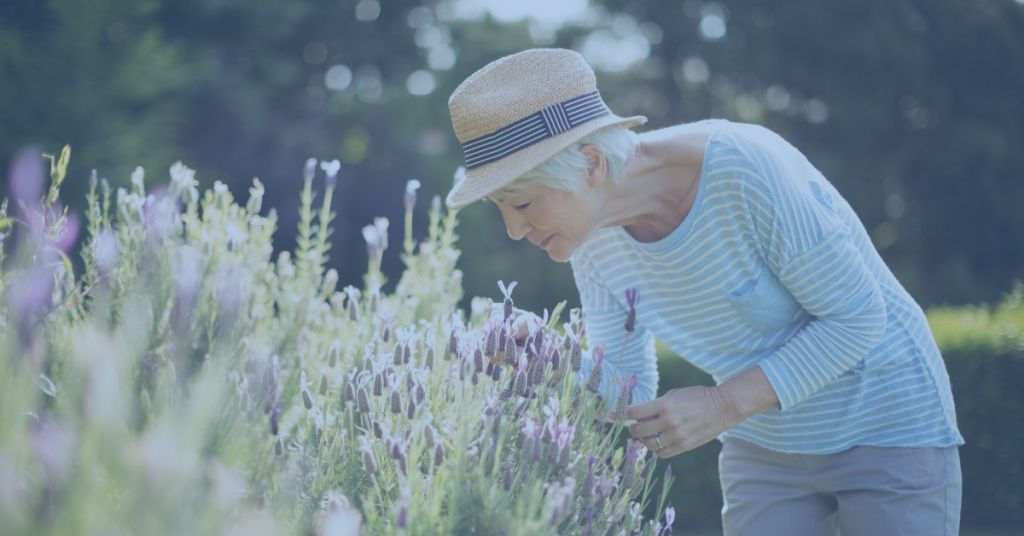What makes spring so lovely and pleasing to the senses for many people can adversely affect the mood and energy level for others who are affected by seasonal allergies.The time to get your body prepared to defend allergy season is now!
Allergies are the sixth leading cause of chronic illness in the U.S. with an annual cost in excess of $18 billion. Pollen, animal fur, dust and dust mites, mold and airborne mold spores, insect bites, medications and particular foods cause seasonal allergies in more than 50 million Americans each year.
Allergic rhinitis is the medical term for hay fever and seasonal allergies that occur not just in the spring, but throughout the summer and into the fall. It is a common condition that causes symptoms such as sneezing, stuffy nose, runny nose, watery eyes and itching of the nose, eyes or the roof of the mouth1.
Limiting the time you spend outdoors can help relieve these symptoms of hay fever. But who wants to spend their spring, summer and fall stuck indoors?
Treating Allergy Symptoms
Treating your seasonal allergy symptoms requires a multi-pronged attack. Over-the-counter medications, antihistamines, decongestants, immunotherapy (shots), corticosteroids (drugs), and other common ways to treat allergies can be effective. However, they do have side effects. Common ones include: drowsiness or restlessness; dryness of the eyes, nose and mouth; unusual bleeding and bruising; heart palpitations; and insomnia.
Pharmaceutical allergy medicines simply aren’t for everyone. Remember, they don’t cure the allergies; they just treat the symptoms2. In fact, many aren’t recommended for those with high blood pressure, heart disease, kidney or liver disease, glaucoma, or with thyroid problems.
While hay fever frequently begins at a young age, it can strike anyone, at any time. Sometimes seasonal allergy symptoms fade over the years, only to reoccur later in life. If you experience seasonal allergy symptoms in one location and move to a new area with different types of flora, your allergies may go away.
It’s important to pay attention and recognize what triggers your allergy symptoms. Every tree, flower and weed releases pollen, but not all individuals have heightened sensitivity or allergic reactions to all pollen. For some people, cottonwood trees and ragweed are the problems, while for others it’s grass or ragweed.
The severity of seasonal allergy symptoms vary widely from season to season and can make you feel simply awful. Left untreated, seasonal allergy symptoms can also spur asthma attacks. This condition is referred to as allergy-induced asthma or allergic asthma, resulting in wheezing, shortness of breath, chest tightness and difficulty breathing3.
“Approximately 80 percent of people with asthma suffer from seasonal allergies.”
Treating hay fever symptoms can reduce asthma-related hospitalizations and emergencies4.
People with compromised immune systems, COPD (Chronic Obstructive Pulmonary Disease) and other respiratory conditions need to manage their seasonal allergy symptoms to prevent further complications. Changes in diet, supplements and lifestyle changes can help.
Common Allergy Symptoms
Researchers are at odds as to why these symptoms have worsened over the past 30 years but agree that allergies to pollen, mold and some foods are growing exponentially. Congestion, post-nasal drip, itchy eyes and sneezing wear your body down.
According to Mayo Clinic, allergies can’t generally be prevented, but allergic reactions can be5. The treatment goal is to avoid contact with the allergen—however, this is extremely difficult for individuals with seasonal allergies.
Many hay fever symptoms are similar to those of a common cold or sinus infection, but colds and sinus infections come and go much more quickly than seasonal allergies. Some allergy symptoms go away when pollen is dormant.
Underlying Causes of Allergy Symptoms
Did you know that your risk of suffering from seasonal allergy symptoms increases dramatically if you have certain underlying medical conditions? Asthma, unmanaged stress, deviated septum, nasal polyps, recent trauma or illness, pregnancy, and even food allergies can put you at heightened risk.
These conditions, and others, can adversely affect your immune system functioning. Allergy symptoms are caused when our bodies release histamine in response to an allergen6.
According to Johns Hopkins Medicine, a strong immune system is key to fighting seasonal allergies. The body overreacts to harmless substances and produces antibodies to attack the substance. This is what causes the symptoms7.
You’re particularly susceptible to a weakened immune system after a physical trauma or surgery, underlying illnesses, lack of sleep, or during times of emotional and physical stress. Stress makes allergies worse, and once stress is properly managed and relieved, the symptoms of hay fever can improve.
Food and Allergies
There are foods that you should avoid during allergy season. Any foods that you are allergic to, or have sensitivity to, should be avoided. The overall goal of limiting foods that you have sensitivity to is to lighten the overall burden on your immune system and allow it to function more optimally. If you’re not sure how far-reaching your food sensitivities are, an elimination diet can help identify foods that can make your allergies worse.
In addition, many people find relief when avoiding foods that cause mucus production such as conventional dairy (the pasteurization destroys the enzymes our bodies need), gluten, sugar, and caffeinated beverages8.
If you are experiencing excessive mucus production, consume raw organic dairy products.
The foods to avoid list may feel overwhelming, but fortunately, there are great tasting foods that will help relieve your symptoms while strengthening your immune system, such as:
Raw local honey works to relieve symptoms because it contains local pollen that is causing your allergies. In a randomized controlled study published in the International Archives of Allergy and Immunology, patients that consumed honey had significantly better control of their allergy symptoms than those on conventional allergy medications9. A couple of tablespoons each day can relieve your itchy, watery eyes, congestion and the general symptoms of hay fever.
If you are battling excessive mucus, heat things up by eating hot and spicy foods which help to thin the mucus and allow it to be more easily expressed. Try adding garlic, onion, horseradish, ginger, cinnamon, and cayenne pepper to your recipes. Ginger can be particularly helpful as it helps to warm the body and break down toxins in your system.
Bone broth from chicken, beef or lamb, helps to ease respiratory problems and to expel excess nasal mucus. It also helps to reduce inflammation in the body and boosts the immune system.
Probiotic-rich foods including kefir, yogurt or raw cheese; sauerkraut or kimchi; kombucha; and nattō (fermented soybean) support a stronger immune system, improve digestion, increase energy levels, and so much more. Probiotic foods to eat during allergy season include:
The enzyme bromelain found in pineapple in addition to high levels of vitamins B, C and other essential nutrients can help to reduce your reaction to seasonal allergies. Be sure to eat the core of fresh ripe pineapples as it has the highest concentration of essential nutrients.
Apple cider vinegar (ACV) helps to boost the immune system, helps to break up mucus and supports lymphatic drainage. Three times per day, mix 1 tablespoon of ACV with 1 tablespoon of fresh-squeezed lemon juice, and a half-tablespoon of local raw honey and drink.
Dark green, yellow or orange fresh vegetables including Swiss chard (which is high in quercetin), cabbage, beets, carrots, and yams are best for nutrient density to help you fight seasonal allergies.
If you haven’t yet made the switch to clean proteins such as grass-fed meats, free-range poultry, wild-caught fish and lamb—allergy season is the perfect time. Wild salmon is rich in vitamins, omega-3 fatty acids, essential minerals and, of course, protein.
In addition to the common ways to treat allergies mentioned above, allergy sufferers can benefit from the addition of high-quality supplements. It’s best to start supplements 30-60 days in advance of allergy symptoms for the best results.
Conclusion
Treating allergy symptoms takes patience and a combination of tactics. Start now by incorporating into your routine the common ways to treat allergies as well as supplements and complementary treatments .
Sources:
- Allergies: Gateway to Health Communication (CDC)
- Do I Need Antihistamines For Allergies?
- Allergies and asthma: They often occur together
- Can Hay Fever Make Asthma Worse?
- Allergies: Overview
- Are you suffering from allergy symptoms?
- Allergies and the Immune System
- Allergies and Asthma
- Birch pollen honey for birch pollen allergy—a randomized controlled pilot study
- How Senior Home Care Supports Independence for Elderly Loves Ones in Brentwood, Tennessee - November 8, 2024
- Public Health in the Age of COVID - September 15, 2021
- World Elder Abuse Day June 15, 2021 - June 28, 2021




